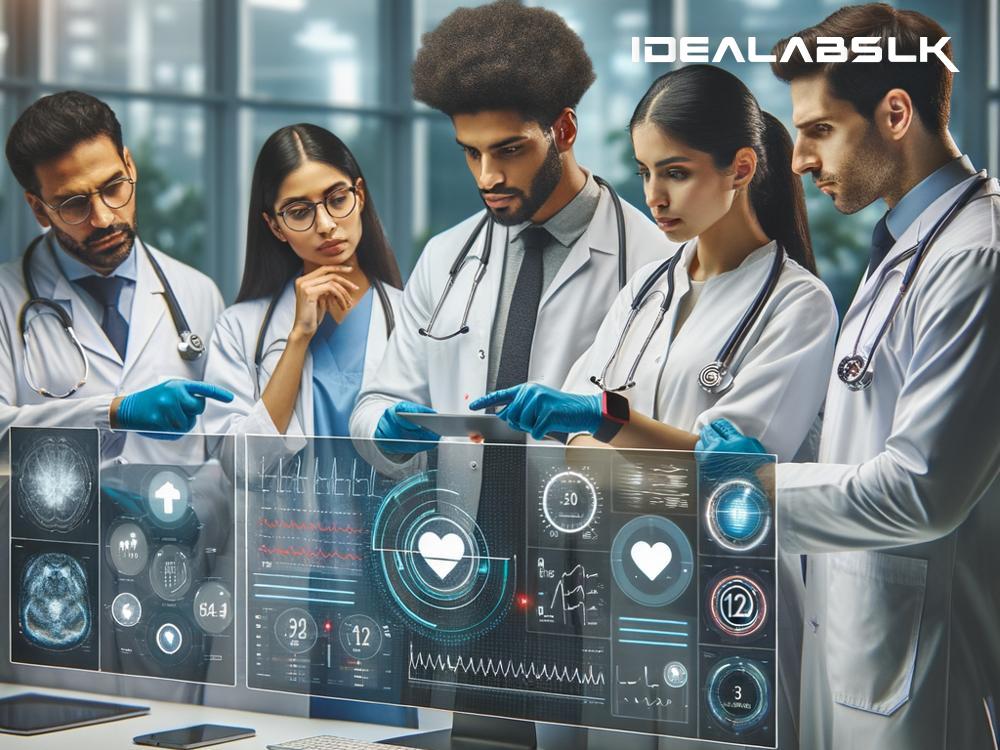How IoT is Shaping the Future of Healthcare: Connected Devices for Better Patient Care
The Internet of Things, or IoT, sounds like a tech buzzword, but it's a simple concept at heart. It refers to everyday devices and objects that are connected to the internet, collecting and sharing data. It's like giving these devices a way to 'talk' to each other over the net. Now, imagine applying this tech to healthcare – from the hospital to your home. Yes, IoT is transforming healthcare, making care more personal, efficient, and patient-centered. Let's explore how.
Real-Time Health Monitoring
IoT devices, such as smartwatches and fitness trackers, are becoming increasingly popular for monitoring health in real-time. These gadgets can track everything from your heart rate and sleep patterns to your steps and calories burned. Imagine a device that notifies you if your heart rate is higher than usual or if you haven't moved much during the day. It's like having a personal health assistant on your wrist.
Remote Patient Monitoring
Healthcare isn't just about the time you spend at the doctor's office. It's about ongoing care, and that's where IoT shines. For patients with chronic conditions like diabetes or heart disease, IoT devices can be lifesavers. They can monitor vital signs, glucose levels, and more, then send this information directly to healthcare providers. This means doctors can keep an eye on patients remotely, reducing the need for frequent hospital visits. It's a game-changer for patients' convenience and health.
Improved Patient Experience
Imagine going to a hospital where your medical history, allergy information, and previous treatments are instantly accessible through a wearable device or smartphone. IoT can make this a reality, streamlining the patient registration process and reducing waiting times. It also means healthcare providers have immediate access to the information they need, ensuring you receive personalized care quickly. Plus, with IoT-enabled devices, you can easily track your health progress and treatment plans from the comfort of your home.
Enhanced Disease Management
For those managing chronic diseases, IoT provides tools for better disease management. Connected devices can remind patients to take their medication, track their diet, exercise, and even predict potential health issues before they become serious. This proactive approach to healthcare helps patients manage their conditions effectively, reducing the risk of complications and improving their overall quality of life.
Smarter Hospitals
IoT is not just about wearable tech but also about making hospitals smarter and more efficient. Imagine hospitals where instruments and devices are interconnected, enabling seamless communication between different departments. In such smart hospitals, equipment can be monitored and maintained remotely, ensuring they're always in optimal condition. This not only improves patient care but also reduces operational costs, making healthcare more accessible.
Challenges and Considerations
Despite its benefits, IoT in healthcare is not without challenges. Privacy and security are major concerns, as healthcare data is highly sensitive. Ensuring that these devices are secure and that patient data is protected is paramount. Moreover, there needs to be a standardization across devices to ensure they can communicate with each other and with healthcare systems effectively.
Furthermore, there's the issue of digital divide. Not everyone has the same level of access to technology, which could lead to inequalities in healthcare. Addressing these challenges is critical to fully realizing the potential of IoT in healthcare.
The Road Ahead
The potential of IoT in healthcare is immense. From providing real-time health monitoring to enhancing disease management and creating smarter hospitals, IoT is set to revolutionize the way we think about healthcare. However, as we move forward, it's important to address the challenges that come with it, especially in terms of privacy, security, and accessibility.
As technology continues to advance, the integration of IoT in healthcare will only deepen, offering more sophisticated tools for personalized care. The aim is clear: to make healthcare more proactive, efficient, and patient-centered. And with IoT leading the way, we're well on our path to realizing this vision.
In conclusion, IoT's role in shaping the future of healthcare is undeniable. It empowers both patients and healthcare providers by offering real-time data, improving patient experience, and paving the way for smarter healthcare solutions. As we embrace this technological evolution, we're not just looking at a future where healthcare is more connected but also one where it is more responsive to the needs of every patient. The journey of transforming healthcare through IoT is just beginning, and the possibilities are as vast as they are promising.

